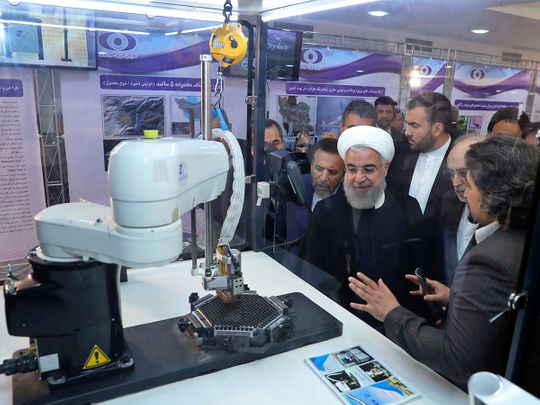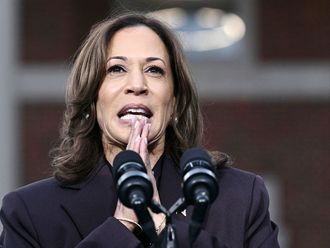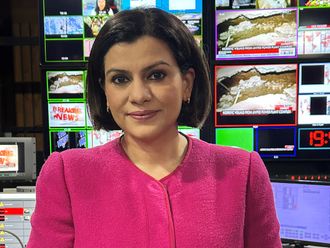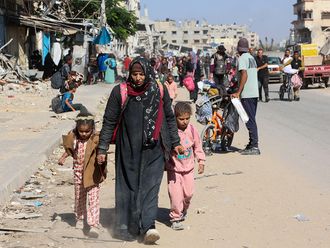
The United Nations Security Council on Friday rejected a United States proposal to extend the conventional weapons embargo on Iran. Disappointed by the decision, the US said it will continue its own arms embargo on Tehran.
Under the terms of the 2015 nuclear deal, the Joint Comprehensive Plan of Action (JCPOA), signed by Iran, the five permanent members of the Security Council and Germany, the embargo is set to expire in October. For months, the Donald Trump administration, which has exited the deal two years ago, has sought to extend the ban.
Despite the appeals of many countries, including the Gulf Cooperation Council to extend the embargo, the Security Council’s disappointing vote to lift the sanctions seems to reward Iran for its persistent breach of the agreement signed with the international community. The Europeans agree with the US that the potential of weapons flowing in and out of Iran poses a serious threat, but seems to be keen on keeping the futile deal alive.
Since signing the agreement five years ago, Iran has continued to violate it, saying that it will comply fully only after the US returns to the deal.
Iran prevents nuclear inspection
Last year, to put pressure on the European Union, Tehran reduced its commitments by raising the uranium enrichment level and increasing the number of centrifuges massively and reducing the breakout time (the 90 per cent enrichment needed to build a nuclear bomb) to less than a year. In January, Iranian President Hassan Rouhani announced that his country will no longer abide by the terms of the deal.
The JCPOA restricted Iran’s enrichment of uranium to 3.67 per cent and insisted on international inspections. Before the agreement, Iran reportedly had a massive stockpile of enriched uranium and nearly 20,000 centrifuges — enough to create eight to 10 bombs.
Last year, Iran prevented an inspector from the International Atomic Energy Agency from accessing its suspicious Natanz plant, which is at the heart of its uranium enrichment programme, and seized her documents. The agency described the incident as serious.
Regionally, Iran was to end its destabilising actions and de-escalate tensions with its neighbours. Again, Tehran failed to live up to its commitments. Over the last five years, Iran intensified its interference in the internal affairs in several Arab states besides arming and training its proxy militias in Syria, Lebanon, Iraq and Yemen.
These actions continued unabated while Iran was under an international arms embargo. Just imagine what Tehran will do now when the UN lifts the arms embargo!








